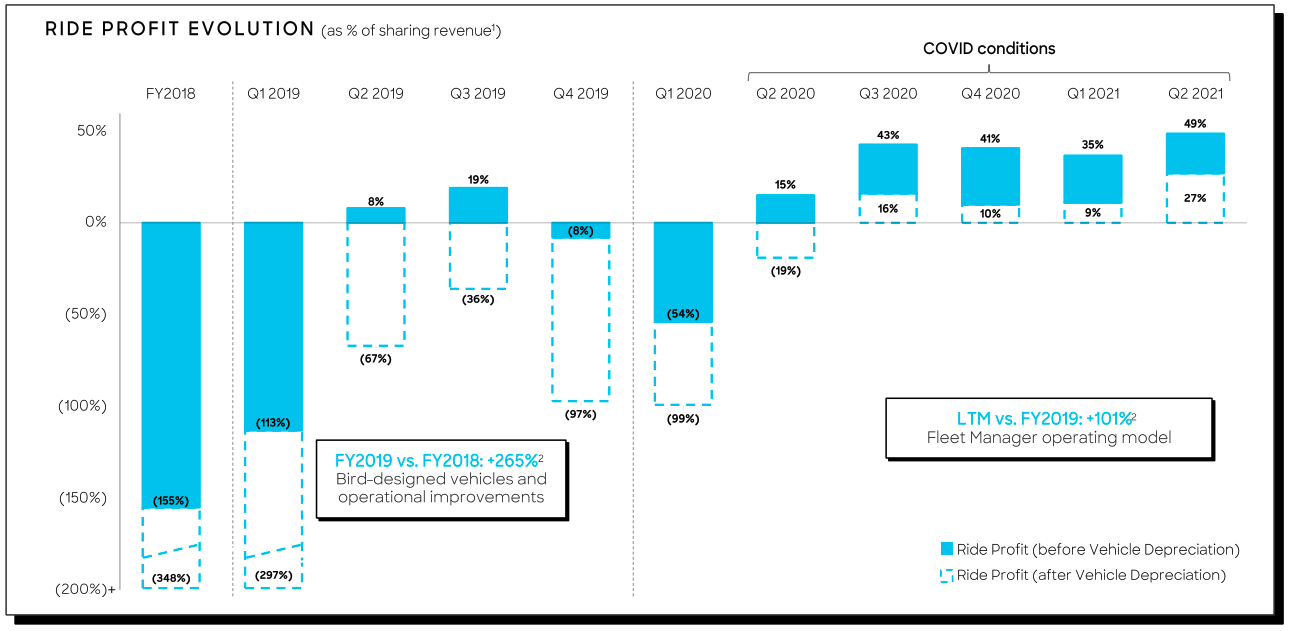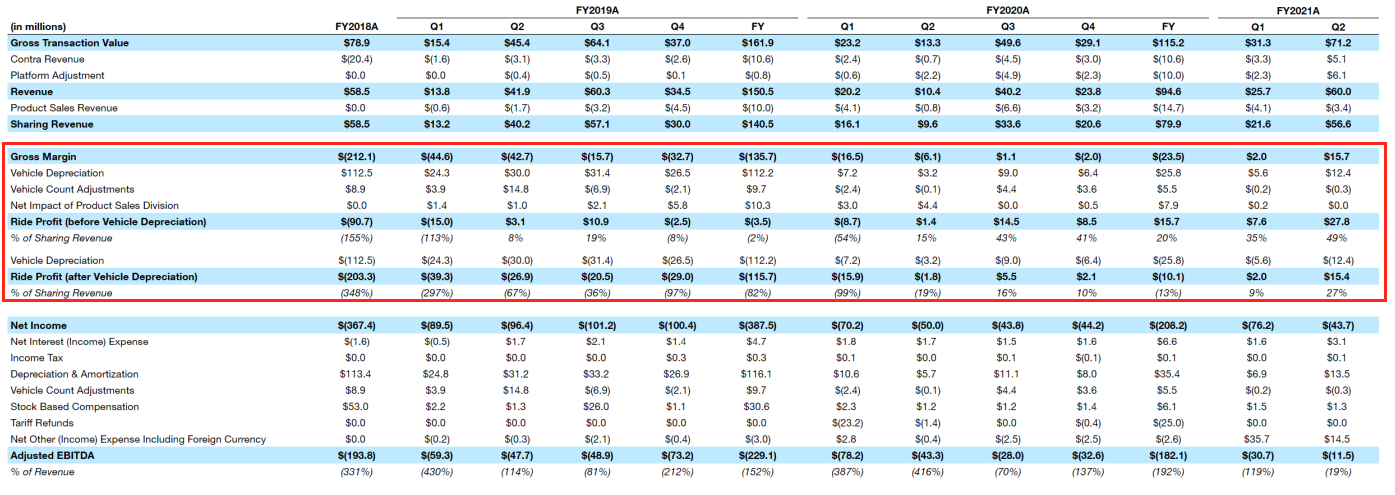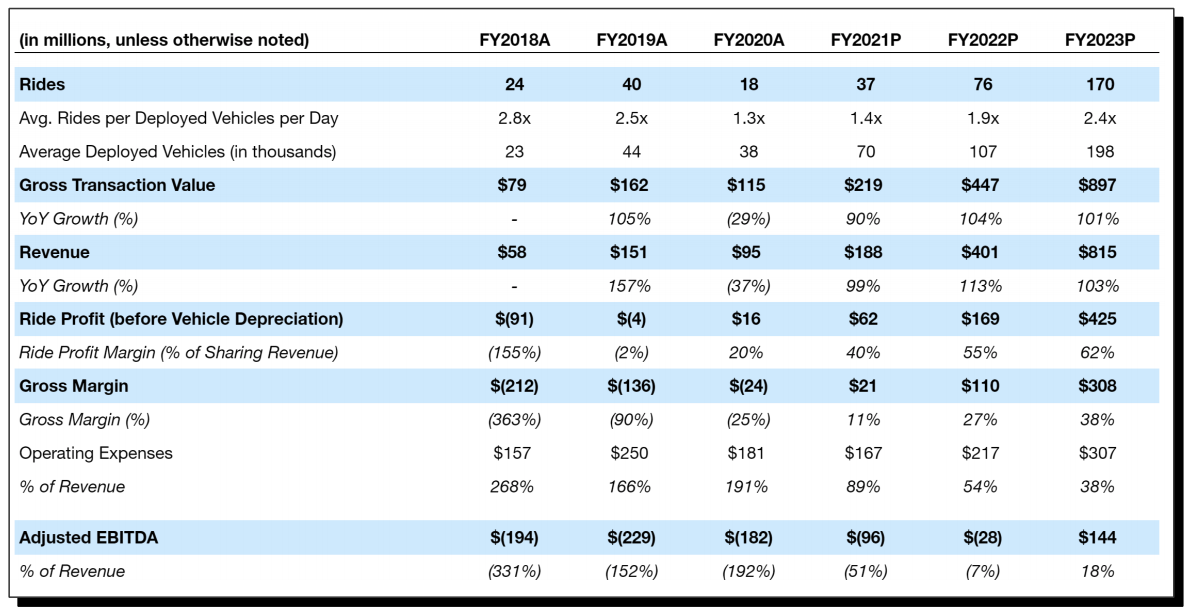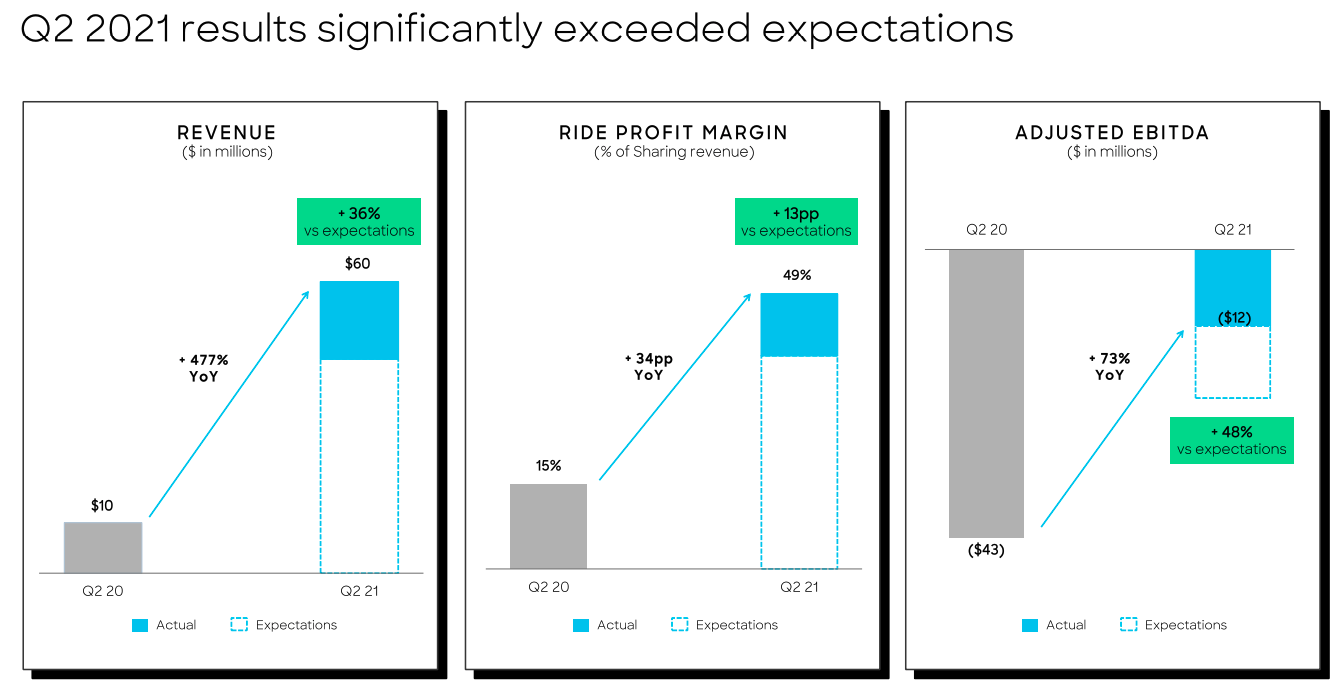Newly reported financial data from Bird, an American scooter sharing service, shows a company with an improving economic model and a multiyear path to profitability. However, that path is fraught unless a number of scenarios all work out in concert and without a glitch.
Bird, well known for its early battles with domestic rival Lime, is pursuing a SPAC-led deal that will see it go public and raise fresh capital. The former startup is merging with Switchback II Corporation in a deal that values it at around $2.3 billion, including a $160 million PIPE (private investment in public equity) component. (Note: The group purchasing TechCrunch’s parent company from its own parent company is part of the Bird PIPE.)
The Exchange explores startups, markets and money.
Read it every morning on Extra Crunch or get The Exchange newsletter every Saturday.
COVID-19 hasn’t been kind to Bird and similar companies around the world. As many around the world stayed home, usage of shared-asset services and ride-hail applications fell sharply. Bird saw rides decline. Airbnb took a temporary hit. Uber and Lyft saw ride demand fall.
 Responses to the crisis were varied. Airbnb cut costs and raised external capital. Lyft cut expenses and focused on its core model while Uber grew its food delivery business, which saw transaction volume soar as demand fell for its traditional business.
Responses to the crisis were varied. Airbnb cut costs and raised external capital. Lyft cut expenses and focused on its core model while Uber grew its food delivery business, which saw transaction volume soar as demand fell for its traditional business.
Meanwhile, Bird flipped its entire business model. That decision has helped the scooter outfit improve its economics markedly, giving it a shot at generating profit in the future — provided its forecasts prove achievable.
This morning, let’s talk about how Bird has changed its business, their impacts on its operating results and how long the company thinks its climb to profitability is.
Fleet management → Fleet managers
In their initial forms, Bird and Lime bought and deployed large fleets of electric scooters. Not only was this capital intensive, the companies also wound up with costs that were more than sticky — charging wasn’t simple or cheap, moving scooters around to balance demand took both human capital and vehicles, and the list went on.
Throw in vehicle depreciation — the pace at which scooters in the wild degraded from use or abuse — and the businesses proved excellent vehicles for raising capital and throwing that money at more scooters, costs, and, as it turned out, losses.
Results improved somewhat over time, though. As scooter-share companies increasingly built their own hardware, their economics improved. Sturdier scooters meant lower depreciation, and better battery tech could allow for more rides per charge. That sort of thing.
But the model wasn’t incredibly lucrative even before COVID-19 hit. Costs were high, and the model did not break-even, even on a gross margin basis, let alone when considering all corporate expenses. You can see the financial mess from that period of operations in historical Bird results.
From its most recent filings:
- In 2018, Bird generated revenues of $58.5 million, but saw gross margins of -$212.2 million and net loss of $367.4 million.
- In 2019, Bird’s revenues were at $150.5 million, but gross margins stood at -$135.7 million with net loss of $387.5 million.
Then the pandemic arrived, and Bird changed its business model.
Instead of running its own fleets, the company began managing fleets instead, allowing independent operators to control and deploy fleets of scooters, often in smaller markets. Putting hardware into the hands of end users, as well as the better hardware — which lowered depreciation costs and so forth — has improved Bird’s revenue quality materially. Much work remains, however.
From the company’s latest presentation, we can see below how the company has managed to turn its in-market scooters from fuel for burning capital into something that generates modest incremental profits:

Being conservative in our read of the numbers, we care much more about ride profit inclusive of scooter depreciation, or the smaller numbers on the right side of the chart. Still, Bird has managed to improve its business sharply with this new operating model.
Ride profit as a percentage of sharing revenue is hardly a GAAP number. Ride profit plays a part in gross profit, but is not the full picture. So, let’s compare the above chart with the company’s gross profit data.
Per the company’s most recent GAAP reconciliation data, observe the numbers highlighted in the red box:

We can see that improvements in ride profit generally correspond with improvements in gross margins. And the company’s recent gross margins result from Q2 2021 was easily its best from the data we have access to.
So has Bird turned the corner, finding a path to profitability in its new model? Maybe, but the path will not be short.
To get to just adjusted EBITDA profitability, a very, very non-GAAP metric, Bird needs the following to occur according to its own forecasts:
- A continued increase in the number of rides per day its scooters see, and rapid growth of the number of scooters it has in-market. The combination of the two allow Bird to greatly expand its gross transaction value and revenues, per its forecasts.
- Continued improvement to its ride profit margins, including a more than 50% improvement from its 2021 expectations (40% ride profit margin, measured as a percentage of “sharing revenue”) to its 2023 forecast (62% ride profit margin, measured as a percentage of “sharing revenue”). In turn, Bird expects improved ride-focused profit to generate better gross margins.
- Expanding operating leverage, with Bird scaling its gross margins far more rapidly than it expects its operating costs to rise.
The result of all of that will be that Bird expects to generate a full-year, positive adjusted EBITDA result by 2023.
Here’s how all that text looks when doodled up in numbers:

In the bull case, Bird can get rid of its adjusted losses in a few years. If any issues arise at the top of the company’s table — say, for example, that rides per scooter do not scale as the company rolls out more hardware, or merely slower than expected — the anticipated profitability results could evaporate or be pushed into the future.
Perhaps more importantly, Bird’s net income is not guaranteed to be positive in 2023. The company’s adjusted EBITDA may cross over from red to black in a few years, but the company could remain unprofitable when all costs are included that year.
Summing up, Bird has done what it likely hoped to before its SPAC combination closes — report Q2 results that were better than it expected. That allows the company to post slides like the following, perhaps limiting investor redemptions in its SPAC, an issue that has harmed other recent SPAC-led combinations:

But improvements are just that. They are not proof of long-term viability.































Comment